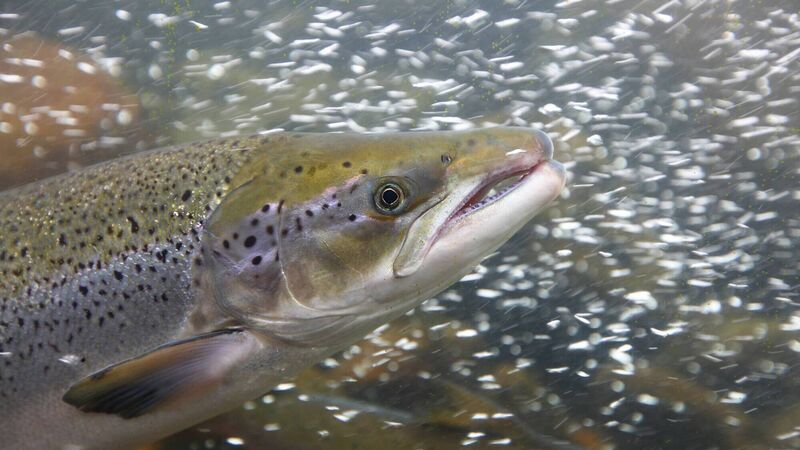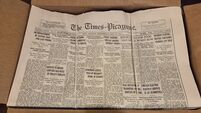Donal Hickey: UCC study shows captive-bred salmon offer fewer offspring in wild

Salmon Watch Ireland is opposed to the indiscriminate restocking of salmon rivers, but recognises that properly managed and science-based restocking may have a role to play.
Salmon reared in hatcheries do not breed as well as wild salmon, after being introduced into rivers, a new University College Cork (UCC) study has found.
Because of the massive decline in Atlantic salmon — a drop of about 75% in recent decades — captive-bred salmon are often released into rivers, sometimes to increase the numbers of fish available for angling.
Such introductions might appear to be a good idea, as wild salmon have very poor survival rates as juveniles in rivers (as low as 0.3%) whereas salmon bred in a protected hatchery can be expected to survive in such a setting at much higher rates, allowing large numbers to be moved to the wild at a suitable stage.
However, UCC-based research, using genetic fingerprinting techniques, now finds that captive-born salmon have as little as one third of the lifetime reproductive success as wild salmon spawning in the same river.
The researchers looked at the lifetime breeding record of salmon spawning naturally in the wild. For each adult fish that returned to the river from the sea, they counted the total number of offspring they produced across their lives that themselves survived to spawning age.
“The results show that captive-bred fish that are deliberately or inadvertently introduced into the wild contribute fewer offspring to the next generation than wild fish and, therefore, are not a substitute for natural wild spawners,’’ says co-lead author Ronan O’Sullivan, who is studying for a doctorate on the subject.
The scientists drew from four decades of salmon data at the Marine Institute’s research facility on the Burrishoole catchment, Co Mayo.
Mr O’Sullivan strongly believes that hatchery salmon should not be released into rivers which have self-sustaining wild stocks.
The UCC-based research team also included people from the Marine Institute, Queen’s University Belfast, the University of Helsinki and the University of Edinburgh. Findings are published in the prestigious journal, Proceedings of the Royal Society.
Further research is needed to discover exactly what happens when wild and captive salmon inter-breed, but the research team suspects that hybrids produced by such mating are genetically less well-equipped to deal with life in the river.
“If true, this means that the widespread release of captive animals into the wild might actually do more harm than good in many cases,’’ says Mr O’Sullivan.
Salmon Watch Ireland, meanwhile, is opposed to the indiscriminate restocking of salmon rivers, but recognises that properly managed and science-based restocking may have a role to play.
Due to the decline of returning adults caused by poor survival at sea, an increasing number of catchments may be judged to have little prospect of again achieving their conservation limit, but any intervention should not harm wild stocks, stresses the watchdog and conservation body.





